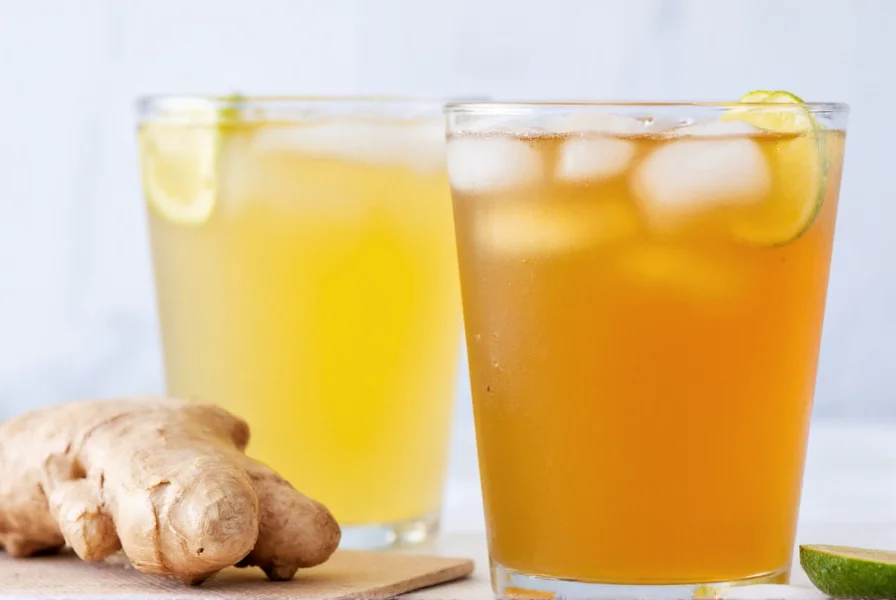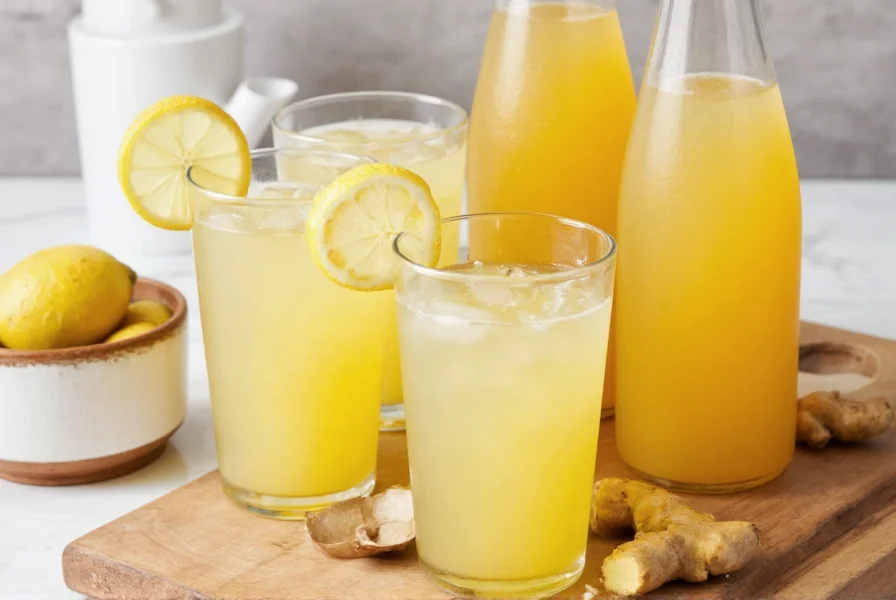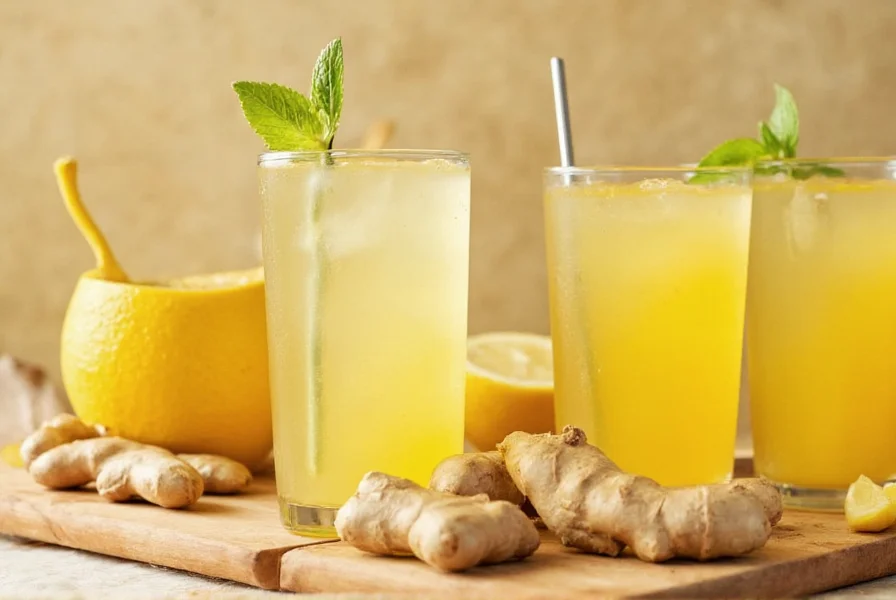The Science Behind Ginger's Therapeutic Properties
Ginger's health benefits stem from its potent bioactive compounds, primarily gingerols and shogaols. These phytochemicals interact with multiple physiological pathways to deliver measurable health effects. Research published in the Journal of Ethnopharmacology demonstrates that gingerols inhibit serotonin receptors in the gastrointestinal tract, directly reducing nausea and vomiting. Meanwhile, shogaols—formed when ginger is dried or heated—exhibit stronger anti-inflammatory properties by suppressing cytokine production.
A comprehensive meta-analysis in Nutrition Reviews examined 12 clinical trials involving over 1,200 participants and confirmed ginger's effectiveness for:
| Health Benefit | Effective Dose | Time to Effect | Scientific Support |
|---|---|---|---|
| Nausea relief | 1-1.5g raw ginger | 20-30 minutes | ★★★★☆ (Strong) |
| Digestive stimulation | 0.5-1g raw ginger | 15-20 minutes | ★★★★☆ (Strong) |
| Anti-inflammatory effects | 2g raw ginger | 2-3 hours | ★★★☆☆ (Moderate) |
| Blood sugar regulation | 3g raw ginger | 1-2 hours | ★★★☆☆ (Moderate) |
Different Types of Ginger Beverages and Their Benefits
Not all ginger drinks deliver equal benefits. The preparation method significantly impacts the concentration of active compounds and overall effectiveness.
Fresh Ginger Tea
The most therapeutic preparation involves freshly grated ginger steeped in hot (not boiling) water. Boiling degrades gingerols, reducing effectiveness by up to 30%. For maximum benefits when making ginger tea for digestion, use 1-2 inches of fresh ginger root per cup, grated finely to increase surface area, and steep for 10-15 minutes at 80-90°C (176-194°F).

Ginger Shots
Concentrated ginger shots provide rapid relief for acute nausea. The most effective ginger shots for nausea relief contain 1-1.5 grams of raw ginger blended with lemon juice and a small amount of honey. Unlike commercial versions loaded with sugar, homemade shots preserve ginger's therapeutic properties without counterproductive additives.
Natural Ginger Ale vs. Commercial Versions
Most store-bought ginger ales contain negligible ginger—often less than 0.5%—and excessive sugar that negates potential benefits. True therapeutic ginger ale requires:
- At least 2% fresh ginger extract
- No high-fructose corn syrup
- Natural carbonation through fermentation
When selecting commercial ginger drinks, check labels for "raw ginger extract" rather than "ginger flavor" and ensure sugar content remains below 5g per serving for genuine health benefits of ginger tea.
Optimal Timing and Consumption Guidelines
The best time to drink ginger tea depends on your specific health goals:
- For digestion: Consume 15-20 minutes before meals to stimulate digestive enzymes
- For nausea relief: Take at first sign of symptoms (morning sickness, motion sickness)
- For inflammation: Consume consistently throughout the day (3x daily)
- For immune support: Drink warm ginger tea at bedtime with lemon
Maximum daily intake should not exceed 4 grams of raw ginger to avoid potential ginger drink side effects. Pregnant women should limit consumption to 1 gram daily after first trimester and consult their healthcare provider.
How to Make Therapeutic Ginger Beverages at Home
Creating effective ginger drinks requires proper technique to preserve active compounds:
Basic Therapeutic Ginger Tea Recipe
- Peel and finely grate 1-2 inches of fresh ginger root
- Add to 8-12 oz of water heated to 80-90°C (176-194°F)
- Steep covered for 10-15 minutes (longer for stronger effect)
- Strain and add lemon juice (avoid honey if treating nausea)
Natural Ginger Ale Without Added Sugar
- Combine 4 cups water, 1 cup grated ginger, and 1/4 cup lemon juice
- Add 2 tablespoons sugar or honey to feed fermentation (optional)
- Cover with cheesecloth and ferment at room temperature for 24-48 hours
- Strain and bottle with natural carbonation
This natural ginger ale recipe without added sugar provides probiotic benefits alongside ginger's therapeutic properties, making it superior to commercial alternatives.
Potential Interactions and Considerations
While generally safe, ginger drinks may interact with certain medications:
- Blood thinners: Ginger may enhance effects of warfarin and other anticoagulants
- Diabetes medications: May amplify blood sugar-lowering effects
- Blood pressure medications: Potential for additive effects
Individuals with gallstones should consult a physician before regular consumption, as ginger stimulates bile production. Those experiencing heartburn may find ginger exacerbates symptoms despite its general digestive benefits.
Quality Considerations for Maximum Benefits
The therapeutic value of ginger drinks depends significantly on ingredient quality:
- Freshness: Use ginger root with smooth skin and no soft spots
- Organic vs conventional: Ginger is highly absorbent—organic reduces pesticide exposure
- Storage: Keep unpeeled ginger in refrigerator for up to 3 weeks
- Preparation: Grating releases more active compounds than slicing

Conclusion: Maximizing the Benefits of Ginger Beverages
Ginger drinks offer scientifically validated health benefits when prepared correctly and consumed at appropriate times. Freshly made beverages using proper techniques deliver significantly more therapeutic value than commercial products. By understanding the optimal preparation methods, timing, and dosage for specific health goals, you can harness ginger's full potential for digestive health, nausea relief, and inflammation reduction. Remember that consistency matters—regular consumption of properly prepared ginger drinks yields better results than occasional use.











 浙公网安备
33010002000092号
浙公网安备
33010002000092号 浙B2-20120091-4
浙B2-20120091-4